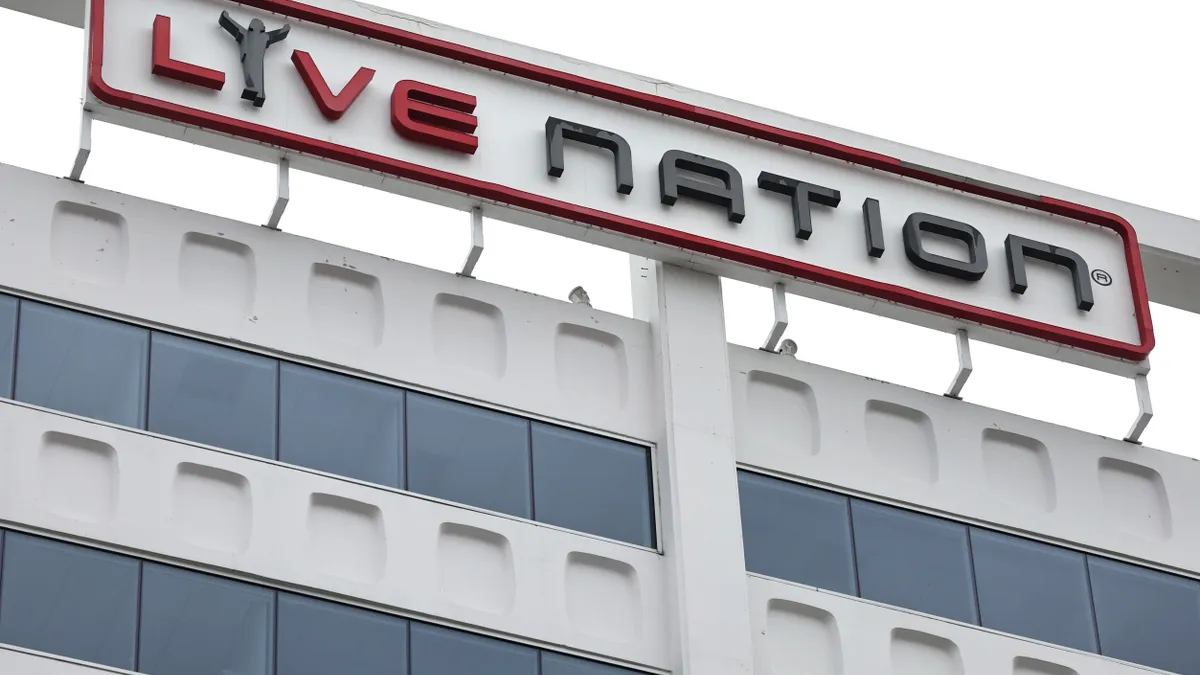Two top in-house attorneys for Live Nation can view confidential documents the company’s competitors have handed over to the Department of Justice so they can help their company prepare its defense against the agency’s antitrust lawsuit against it, a federal judge ruled in a protective order on July 23. Billboard was the first to report on the deal.
Dan Wall, Live Nation’s executive vice president of corporate and regulatory affairs, and Kimberly Tobias, the company’s senior vice president of litigation, are permitted to view documents that the company’s competitors designate as confidential, Billboard reported. But they must commit to using what they learn from the documents only to help Live Nation prepare its defense against DOJ, which sued it earlier this year for acting as a monopoly in its ticketing and concert promotion businesses. They’re prohibited from using the information to advise their company on competitive decision-making or in any litigation with AEG or SeatGeek for two years.
The deal is the result of six weeks of back-and-forth between Live Nation’s outside counsel, Alfred Pfeiffer of Latham & Watkins, lawyers for Live Nation competitors SeatGeek and AEG. and Judge Arun Subramanian of the federal district court in the Southern District of New York, according to Billboard.
To ease concerns of SeatGeek and AEG, Judge Subramanian agreed to let Live Nation’s competitors designate some documents as highly confidential and keep them from the two in-house attorneys.
That means documents involving trade secrets, customer lists, current or future financial and strategic information, private contract terms, personnel files and planning documents, along with anything deemed sensitive by the courts, would be off limits, Billboard reported. Documents that contain non-public financial information, material related to ownership of non-public companies, business plans and marketing campaign documents related to product development would be okay.
Judge Subramanian authorized the companies producing the documents to decide whether they’re confidential or highly confidential, but he retained for himself the discretion to override them if it appears they’re trying to keep too many documents out of Live Nation’s hands.
“If it turns out that vast swaths of the record are improperly designated highly confidential, the Court will step in” and require “a page-by-page review of documents by the producing party on a tight timeframe or appropriate modifications to the protective order,” Billboard reported Subramanian saying.
In its lawsuit, DOJ accuses Live Nation along with its ticket-selling arm, Ticketmaster, of violating anti-monopoly provisions in the Sherman Act in the way it exercises market power over performers, venues, and independent promoters.
“Live Nation relies on unlawful, anticompetitive conduct to exercise its monopolistic control over the live events industry in the United States at the cost of fans, artists, smaller promoters, and venue operators,” Attorney General Merrick Garland said when announcing the lawsuit in May.
Critics say DOJ should have broken up Live Nation in 2010 when the company sought the go-ahead to acquire Ticketmaster. They’re hoping this time the court forces the company to split itself up should the agency win the lawsuit.
“As long as Live Nation remains the dominant promoter and ticketer, competition will continue to suffer,” Jack Groetzinger, chief executive of SeatGeek, said at a congressional hearing on the ticketing industry last year. “The only way to restore competition is to break up Live Nation and Ticketmaster.”
A trial is expected in early 2025.











